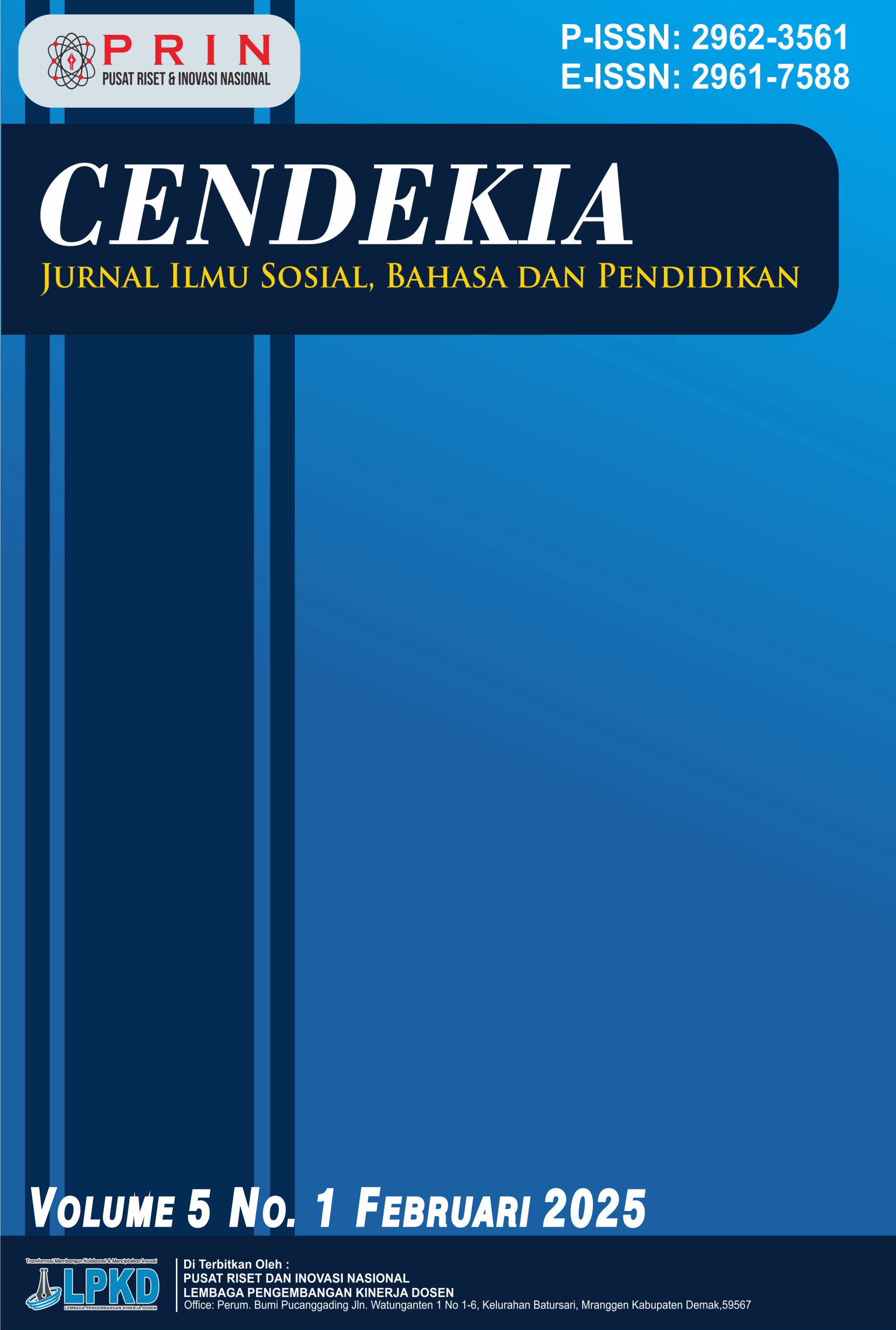Kepemimpinan Pendidikan dalam Perspektif Al-Qur’an
DOI:
https://doi.org/10.55606/cendekia.v5i1.3511Keywords:
Leadership, Educational Leadership, Islamic Education LeadershipAbstract
Leadership has a very important role in determining the success of an organization, especially in the context of Islam which makes the Qur'an and Hadith as the main guidelines. This research aims to explore the concept of Islamic leadership, the ideal characteristics of a leader, and its implications for the life of the people. Using descriptive qualitative method based on literature review, this research analyzes leadership values reflected in Islamic teachings. The results show that Islamic leadership emphasizes the characteristics of Shiddiq (honest), Amanah (trustworthy), Tabligh (conveying the truth), and Fathanah (intelligent), which are the main characteristics of the Prophet Muhammad. In addition, Islamic leadership combines elements of jihad, which is the struggle to obey Allah, and ijtihad, which is the ability to solve the problems of the people based on Islamic values. Effective leadership is not only oriented towards worldly success but also prepares people for the afterlife through justice, high morality, and good organizational management. In conclusion, Islamic leadership offers a holistic approach that integrates spiritual, moral, and social aspects to create a just, prosperous, and blessed society. The findings are expected to be a reference for leaders in implementing Islamic values in various fields, both in the context of organizations and state life.Downloads
References
Abdullah, W., Syarifudin, E., & Musihah, E. (2023). Refleksi Manajemen, Dan Kepemimpinan Pendidikan Islam. IQ (Ilmu Al-Qur’an): Jurnal Pendidikan Islam, 6(01), 19–42.
Abusama, Q., Asiah, S., & Yasin, Z. (2020). Actuating Pendidikan Dalam Pandangan Al-Qur’an Dan Hadits. Jurnal Al Himayah, 4(2), 298–310.
Akhyar, M. (2024). Penerapan Pendekatan Differensiasi Dalam Kurikulum Merdeka Pada Mata Pelajaran Pendidikan Agama Islam. Irfani (e-Journal), 20(2), 277–295.
Akhyar, M., Deliani, N., & Khadijah, K. (2025). The Importance of Religious Education in the Digital Era. International Journal of Islamic Educational Research, 2(1), 15–30.
Al-Kayyis, A. (2012). Kepemimpinan Pendidikan Dalam Perspektif Al-Sunnah. LISAN AL-HAL: Jurnal Pengembangan Pemikiran Dan Kebudayaan, 6(1), 51–75.
Fattah, N. (2009). Landasan manajemen pendidikan.
Hidayat, A., & Machali, I. (2012). Pengelolaan pendidikan: konsep, prinsip, dan aplikasi dalam mengelola sekolah dan madrasah. Kaukaba.
Langeningtias, U., Novitasari, A., & Ulfa, N. (2021). Kepemimpinan Pendidikan Menurut Prespektif Al-Qur’an. PANDAWA, 3(3), 481–495.
Permadi, K. (1996). Pemimpin dan kepemimpinan dalam manajemen. Jakarta: Rineka Cipta.
RI, K. (2015). Al-Qur’an dan Terjemahannya. Lajnah Pentashihan Mushaf Al-Qur’an.
Rustandi, A. (1992). Gaya Kepemimpinan Pendekatan Bakat Situasional. Bandung: Armico.
Sakdiah, S. (2016). Karakteristik Kepemimpinan Dalam Islam (Kajian Historis Filosofis) Sifat-Sifat Rasulullah. Jurnal Al-Bayan: Media Kajian Dan Pengembangan Ilmu Dakwah, 22(1).
Syah, M. (2001). Psikologi pendidikan dengan pendekatan baru.
Taufiq, A. M. (2004). Praktik manajemen berbasis Al-Qur’an. Gema Insani.
Thoha, M. (2006). Kepemimpinan dalam manajemen.
Wahyuni, A., Fatimah, E. S., & Arifin, B. S. (2021). Motivasi Kerja dalam Organisasi Pendidikan. Al-Fahim: Jurnal Manajemen Pendidikan Islam, 3(1), 14–32.
Downloads
Published
How to Cite
Issue
Section
License
Copyright (c) 2024 CENDEKIA: Jurnal Ilmu Sosial, Bahasa dan Pendidikan

This work is licensed under a Creative Commons Attribution-ShareAlike 4.0 International License.








